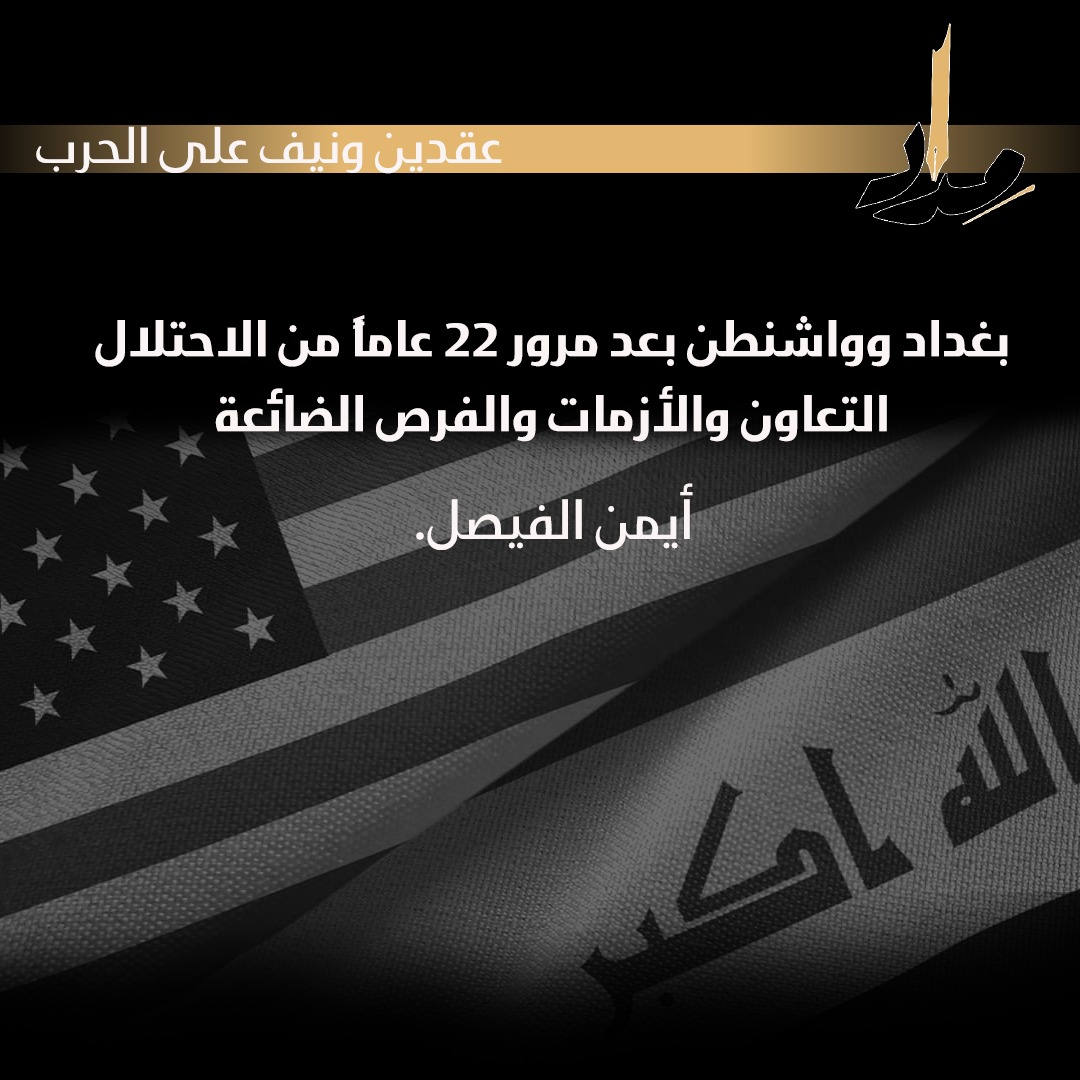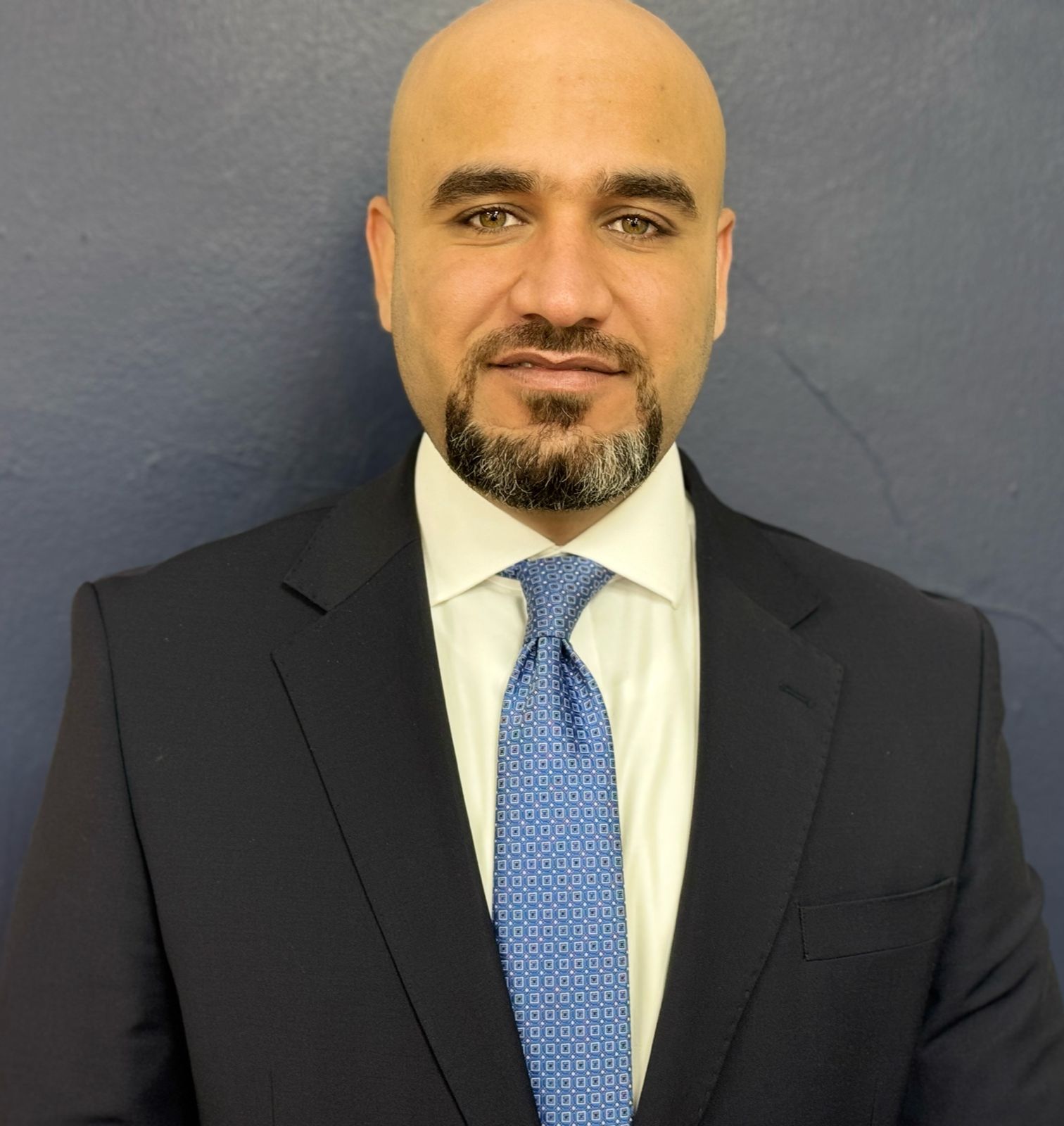 2025 / 12 / Apr
2025 / 12 / Apr
Historical evidence indicates that Iraqi-American relations began in the late 19th century, when Iraq was part of the Ottoman Empire, and were primarily economic in nature. The first American Consul General was appointed in Baghdad in 1888, followed by the establishment of another American consulate in Basra. Relations between the two countries gradually developed after World War I, coinciding with Iraq's independence from the Ottoman Empire. The United States recognized Iraq's independence in the early 1920s, and the relationship culminated in the opening of an American legation in 1930. Diplomatic representation was elevated to an embassy in 1946. The relations between the two countries experienced periods of tension and stagnation, beginning with the United States' recognition of Kuwait as an independent state from Iraq in the early 1960s, which led to the withdrawal of ambassadors from both countries. Relations were severed after the 1967 war (the Six-Day War), but diplomatic relations were resumed in 1984. However, these relations were again severed after the invasion of Kuwait in 1990. In 1991, economic sanctions were imposed on Iraq under United Nations Security Council resolutions during the 1990s, lasting until 2003.
After 2003, the United States led an international military coalition that led to the change of the political system and the occupation of Iraq on April 9, 2003. This marked a new phase in the relations between the two countries, beginning with the establishment of the Coalition Provisional Authority (CPA) to administer Iraq's affairs, headed by Civil Administrator Paul Bremer. In 2004, sovereignty was transferred to the Iraqi Interim Government headed by Dr. Ayad Allawi. Subsequently, elected governments followed in Iraq, during which bilateral relations between the two countries became more stable and witnessed positive developments, reflecting a mutual understanding of establishing a long-term cooperative relationship. This began with the declaration of principles for a long-term relationship of cooperation and friendship between the Republic of Iraq and the United States of America on November 26, 2007, and culminated in the signing of the "Status of Forces Agreement (SOFA) and the Strategic Framework Agreement (SFA) for a Relationship of Friendship and Cooperation" in Baghdad on November 17, 2008. These agreements came into effect on January 1, 2009, and included various areas of cooperation between the two countries (political and diplomatic cooperation, defense and security cooperation, cultural cooperation, cooperation in the fields of energy and economy, health and environmental cooperation, cooperation in the field of information and communication technology, and cooperation in the field of law enforcement and justice).
After the emergence of the ISIS terrorist entity in Iraq in 2014, the relations between the two countries faced a new testing phase. The United States actively contributed to the formation and leadership of an international coalition to eliminate ISIS, supporting the Iraqi government's efforts in combating terrorism by working with the Iraqi security and military forces in all their forms. This helped Iraq defeat the terrorist entity, liberate all territories, and declare victory during the government of Dr. Haider al-Abadi in 2017. Subsequently, the mission of the American and allied forces present in Iraq shifted to providing support, assistance, advice, training, and equipment. This phase highlighted once again the importance of activating the Strategic Framework Agreement to enhance relations between the two countries in a way that is not limited to the security level but includes various levels.
Beginning in 2020, the two countries held several sessions and meetings for strategic dialogue and meetings of the Joint Higher Coordination Committee to activate the Strategic Framework Agreement concluded between the two countries in 2008 and its areas of cooperation. The rounds of dialogue and other meetings took place annually, most recently when the Prime Minister visited Washington, D.C. in April 2024. The two countries maintain full diplomatic relations at the embassy level. Iraq has an embassy in the United States, as well as three Iraqi consulates general in the United States: the first in Detroit, Michigan, since 2009; the second in Los Angeles, California, since 2011; and a third consulate general opened in Houston, Texas, in 2023. These consulates provide various consular services to the Iraqi community and foreigners. Additionally, Iraq has a military attaché since 2005, which deals with military issues between the two countries and follows up on the affairs of Ministry of Defense students who receive studies and training courses in the United States, and a cultural attaché since 2006, which monitors the affairs of Iraqi students (public and private expenses) studying in the United States and Canada, and a commercial attaché since 2008, which follows up on trade relations between the two countries and provides commercial document attestation services.
The United States of America has diplomatic, consular, and technical representation in Iraq. It has one of the largest embassies in the world in Baghdad, and two consulates general in Erbil, Iraqi Kurdistan Region, and Basra (the latter has been closed since 2018). The American Embassy in Baghdad includes a number of technical attachés (cultural, commercial, etc.) and branches of some official American agencies (Federal Bureau of Investigation, U.S. Treasury, U.S. Agency for International Development).
In reality, diplomatic relations between Baghdad and Washington have witnessed multiple developments over the past decades, fluctuating between periods of close cooperation and others of tension and missed opportunities. For a deeper understanding of this dynamic, it is necessary to review the prominent indicators of cooperation and identify the opportunities that have not been optimally exploited.
Strategic Framework Agreement of 2008: In this year, Iraq and the United States signed the Strategic Framework Agreement, which aimed to enhance cooperation in the fields of security, economy, education, and culture. This agreement laid the foundations for a long-term relationship between the two countries, with a focus on common interests and mutual respect.
Security Cooperation and Counter-Terrorism: The United States played a pivotal role in supporting Iraq in the face of terrorist threats, especially during the rise of ISIS. The United States provided military, intelligence, and training support to Iraqi forces, which contributed to strengthening Iraq's security capabilities and regaining its territories from the control of the terrorist organization. The budget allocated to the Counter-Terrorism Train and Equip Fund (CTEF) in the defense budget for 2024 amounted to $475 million, dedicated to supporting the Iraqi security forces and the Syrian Democratic Forces, including $241.9 million to Iraq, while the United States provides other assistance to the Iraqi security institutions through the Foreign Military Financing (FMF) program.
Strategic Dialogues and Joint Committees: The two countries launched several rounds of strategic dialogue starting in 2020, with the aim of activating the Strategic Framework Agreement and enhancing cooperation in various fields. Meetings of the Joint Higher Coordination Committee were also held, most recently in April 2024, where the focus was on the areas of energy, climate change, and investment.
Cultural and Educational Cooperation: The past period witnessed the strengthening of cultural and educational exchange between the two countries, through academic exchange programs and scholarships, which contributed to building bridges of communication and understanding between the two peoples.
Restitution of Iraqi Antiquities: Coordination took place between Iraq and the United States to return stolen Iraqi antiquities, with thousands of artifacts returned over the past years.
Delay in Reconstruction: After 2003, there were great opportunities to rebuild Iraq with international assistance, including from the United States. However, delays in project implementation and poor planning prevented significant progress in this area.
Weak Utilization of Economic Agreements: Despite the signing of the Trade and Investment Framework Agreement (TIFA) in 2005, weak implementation and bureaucracy hindered the realization of its intended benefits.
Regional Tensions and Their Impact on Relations: Iraqi-American relations were affected by regional tensions, especially with neighboring countries that have conflicting interests with the United States, making Iraq an arena for settling regional and international scores. The presence of foreign forces on Iraqi soil, including American forces, has stirred widespread controversy within Iraq, leading to political and security tensions that have affected the country's stability and foreign relations.
Economic Crises: Iraq faced multiple economic challenges, including declining oil prices and financial corruption, which affected its ability to achieve development and attract foreign investments, including American investments.
Corruption and Weak Infrastructure: Despite international aid, including American aid, Iraq still suffers from the challenges of corruption and weak infrastructure, which have affected the effectiveness of joint development and investment projects. The absence of a unified strategic vision has led to Iraq's lack of a unified strategic vision, in addition to the divergence of positions and conflicting policies.
After 22 years since the American occupation of Iraq in 2003, the diplomatic relations between Baghdad and Washington show a mix of fruitful cooperation and missed opportunities. To achieve a successful strategic partnership, the two countries must focus on strengthening cooperation in areas of common interest and addressing the challenges that prevent maximizing the benefits of this relationship, and adopting balanced foreign policies that take into account its national interests and the challenges of the regional and international environment.

Researcher and academic